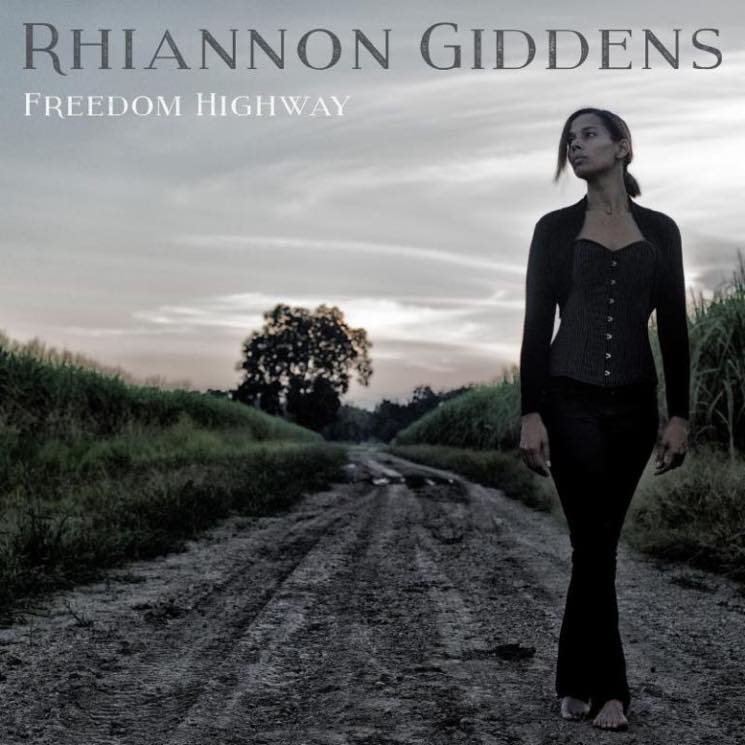Rhiannon Giddens has been turning heads with her talent — and opening hearts and minds with her vibrant storytelling — for several years. While many may point to her 2011 Grammy win or arresting performance at the 2013 concert "Another Day, Another Time" as formative moments in her career, the histories that inform Giddens' music run much deeper and further back than that. On Freedom Highway, Giddens juxtaposes historical narratives with present-day contexts for an emotionally powerful record.
"At the Purchaser's Option" tells the story of a young woman wondering if she'll get to keep her baby when she's sold as a slave. Despite the harrowing narrative, the chorus is sung with vigour and a strong commitment to self-preservation: "You can take my body, you can take my bones, you can take my blood, but not my soul." The determination to survive amidst horror is one of the threads in this moving tapestry of African-American experiences.
"The Angels Laid Him Away" and "Better Get It Right the First Time" both tie into stories of mothers losing their sons, though one is an old blues standard by Mississippi John Hurt, and one is a new original featuring a rapped verse by Justin Harrington. The crossing of traditional sounds with modern ones reiterates the idea that violence against African-American people is a recurring — and painfully modern and relevant — theme in American history.
There's also a hearty helping of hope in these songs. "We Could Fly" can be read as magic realism or as a metaphor for spiritual transcendence, but either way, it's inspiring. The flirty "Hey Bebe" brings some wonderful levity to the affair, with playful muted horn and plucky banjo, and the title track closes the album on a jubilant and soulful high note. Overall, Freedom Highway is a well-rounded and thoughtful amalgam of personal and political themes — the best kind of folk music.
(Nonesuch)"At the Purchaser's Option" tells the story of a young woman wondering if she'll get to keep her baby when she's sold as a slave. Despite the harrowing narrative, the chorus is sung with vigour and a strong commitment to self-preservation: "You can take my body, you can take my bones, you can take my blood, but not my soul." The determination to survive amidst horror is one of the threads in this moving tapestry of African-American experiences.
"The Angels Laid Him Away" and "Better Get It Right the First Time" both tie into stories of mothers losing their sons, though one is an old blues standard by Mississippi John Hurt, and one is a new original featuring a rapped verse by Justin Harrington. The crossing of traditional sounds with modern ones reiterates the idea that violence against African-American people is a recurring — and painfully modern and relevant — theme in American history.
There's also a hearty helping of hope in these songs. "We Could Fly" can be read as magic realism or as a metaphor for spiritual transcendence, but either way, it's inspiring. The flirty "Hey Bebe" brings some wonderful levity to the affair, with playful muted horn and plucky banjo, and the title track closes the album on a jubilant and soulful high note. Overall, Freedom Highway is a well-rounded and thoughtful amalgam of personal and political themes — the best kind of folk music.
